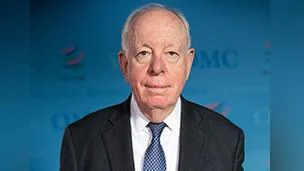The World Trade Organization (WTO) has emphasized the importance of trade finance, often overlooked as a driving force behind foreign trade. This topic is particularly relevant in developing countries, where a lack of trade finance is seen as a crucial barrier to participating in global trade. According to estimates by the Asian Development Bank, the global trade finance gap, especially in developing nations, amounts to $2.5 billion.
A joint report by the WTO and the International Finance Corporation (IFC) was presented, focusing on trade finance in Guatemala, Honduras, and Mexico. The report highlights the challenges faced by micro, small, and medium enterprises (MSMEs), and women-owned businesses, as a significant percentage of their trade finance applications are rejected.
The event, co-organized by the Instituto Tecnológico Autónomo de México (ITAM) and supported by the IFC, was held in Mexico City. The presentation revealed that inadequate access to trade finance acts as a prohibitive cost, impeding trade and economic opportunities.
The WTO and IFC have been collaborating since 2021 to better understand trade finance deficits and address them. This includes in-depth analysis in specific regions, like the previously studied West Africa and the Mekong region. These studies aim to help stakeholders direct resources more effectively to address trade finance gaps.
In Mexico, the IFC has started investing in value chain finance, which aims to provide more resources to small and medium-sized businesses. The report indicates that increasing trade finance coverage could significantly boost trade flows and aid geographic trade diversification, benefiting local SMEs and second-tier suppliers.
The analysis also highlights progressive public policies promoting active markets for value chain finance, citing Mexico's integration into global value chains as a success story. Electronic invoicing and support from Nacional Financiera (NAFIN) have contributed to Mexico's vibrant factoring market.
Looking forward, the WTO believes that trade transactions in developing countries should continue receiving support from IFC programs and other multilateral development banks, assisting in critical imports and exports during financial stress periods. These programs also aim to equip participating banks to eventually provide trade finance without multilateral backing.
Conclusively, the WTO is committed to fostering trade finance initiatives and reducing international trade costs, including transportation, finance, and customs clearance time. The integration of digital technologies is seen as crucial to this effort.
The WTO invites its members to continue discussions on promoting solutions and expertise exchange with the backing of multilateral development banks and financial institutions.

